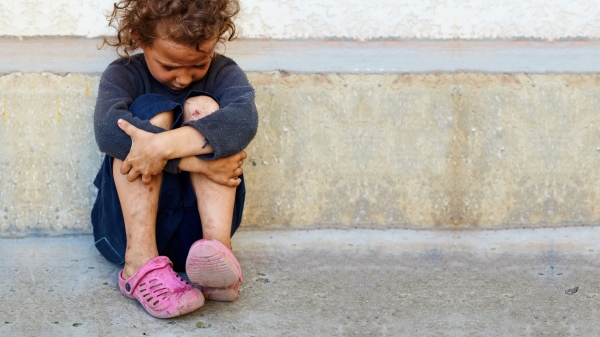By Mary Ellen Judah
On Monday, June 24th, the Annie E. Casey Foundation released its annual KIDS COUNT Data Book and Alabama is no longer in the bottom five in the nation for overall child-wellbeing. While this is something to celebrate, we still have a long way to go when it comes to child poverty and parents’ economic security. According to the Data Book, Alabama’s child poverty rate is 28%, or 307,000 of Alabama’s children.
Unfortunately, this is nothing new. In 2011, the National Center on Family Homelessness released its annual state report card on child homelessness. The Center bases this report on criteria that includes the incidence of child homelessness, child well-being data, risk of child homelessness, and state policy and planning efforts to address child homelessness. Alabama ranked 50th – the worst in the nation. As Alabama citizens, we have a responsibility to protect and nurture our children, which includes making sure they have a safe and affordable place to live.
Poverty and economic security are complicated issues that result from a number of factors. One of these factors is the ever increasing cost of safe, decent, and affordable homes in Alabama. According to the 2013 Out of Reach report by the National Low Income Housing Coalition, nowhere in Alabama can you find a 2-bedroom apartment that is affordable for a family living on minimum wage. In fact, in order to afford the average 2-bedroom apartment in our state, a minimum wage earner must work 74 hours per week, 52 weeks per year. Working 74 hours a week, if that’s even possible on an ongoing basis, means that parent isn’t around to help with homework, read bedtime stories, or watch their child’s baseball practice.
According to the Data Book, 35% of Alabama children live in households that spend more than 30% of their income on housing. Housing costs (which include rent/mortgage and utilities) are considered affordable if they do not exceed 30% of a household’s gross income. What this means is that 394,000 households in Alabama are living in homes they cannot afford. When a household is paying more than 30% of its income on housing, it has to cut costs somewhere else. Families have to choose between paying for housing and paying for other basics such as food, medication, childcare, and transportation. What this also means is that these households are going to face a housing crisis at some point in the future. Many of our fellow Alabamians, including our close friends and family, are one flat tire or hospital stay away from a housing crisis. Alabama as a state needs to take action to make sure our children have the basics like a stable place to live.
Alabama has certainly had its share of natural disasters. Communities were still reeling from the effects of Hurricanes Katrina and Rita when the April 2011 tornadoes spread disaster across our state. According to the National Low Income Housing Coalition, Alabama’s low-income citizens faced a shortage of 90,000 homes before the devastation of the 2011 storms. Seniors on fixed incomes, persons with disabilities, and low-wage workers have been struggling for years to meet their housing needs, and the tornadoes only made those situations worse. Alabama has had to rely solely on the federal government to help rebuild after the tornadoes – and while the federal government does help, it can’t fix all that is broken. Alabama must rebuild, and it also must create new homes that were unavailable before the tornadoes touched down.
In 2012, Alabama legislators took one step towards fixing a broken system by passing a bill that created a housing trust fund. A housing trust fund is a well proven model for sustaining needed funds for the production, preservation, and rehabilitation of affordable homes. It is a flexible tool that will allow Alabama to best address its housing needs. Currently there is no revenue source attached to the fund which means developers, municipalities, and nonprofit organizations can’t use it to build and rehabilitate homes for hardworking Alabama families. The Alabama Housing Trust Fund needs to be funded so that we can create safe and affordable homes for Alabama’s families. Children deserve an opportunity to succeed in school and in life. In Alabama, this begins with a place to call home.
Mary Ellen Judah ([email protected]) is the Executive Director of Neighborhood Concepts, Inc. and serves as Vice President of the Board for the Low Income Housing Coalition of Alabama (LIHCA).
LIHCA is a statewide membership organization with a mission to increase housing opportunities for Alabamians with the greatest financial need (www.lihca.org).






















































